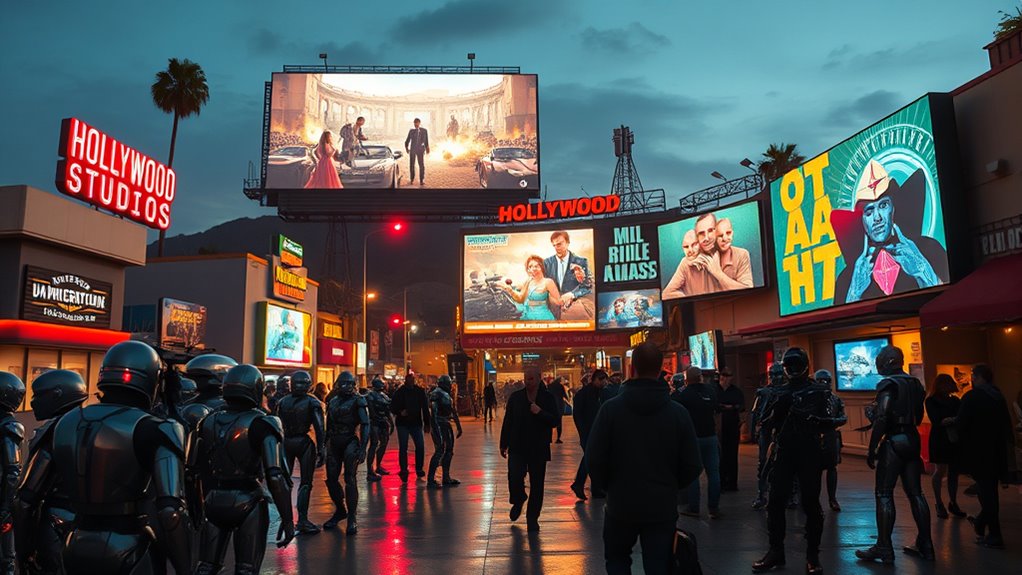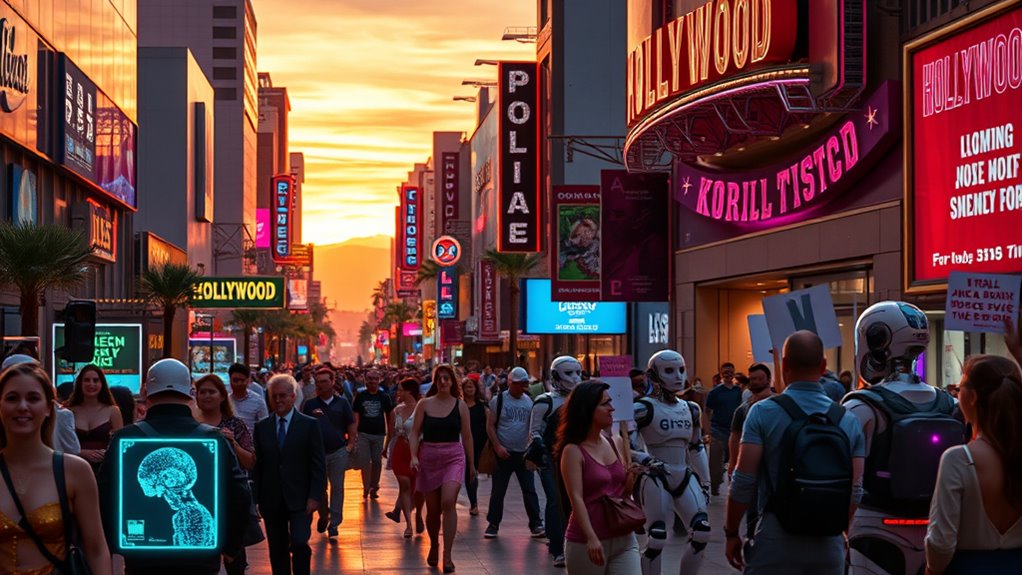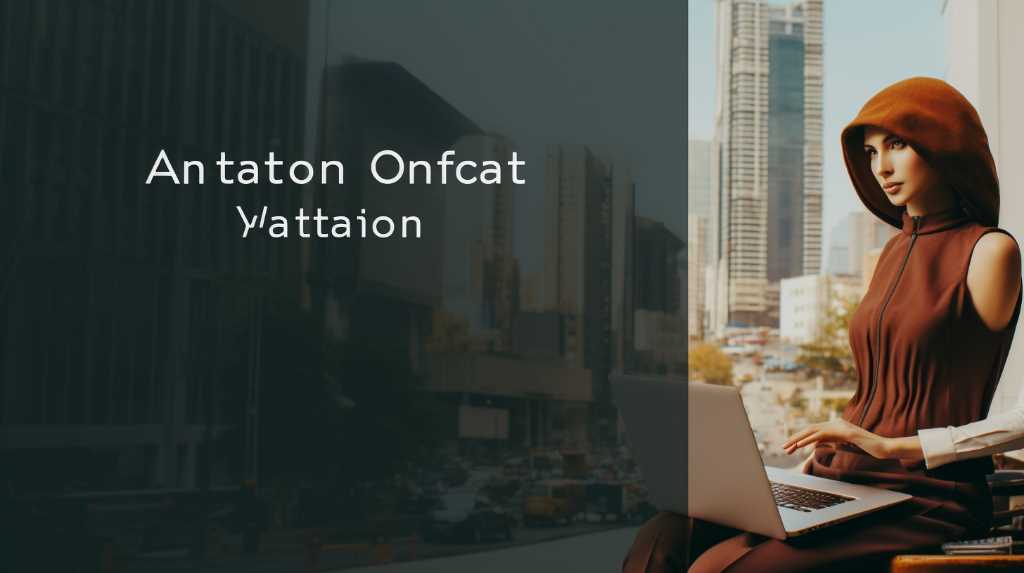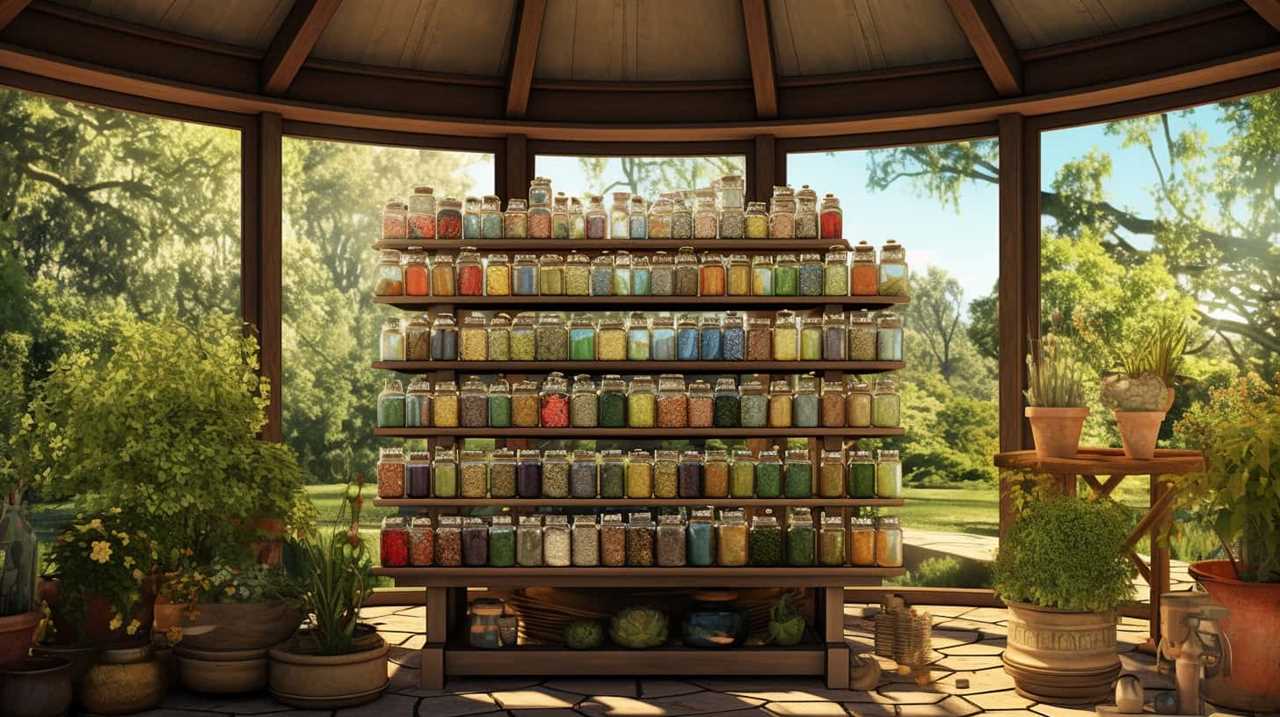In 2025, Hollywood creatives embraced AI to improve casting, visual effects, and storytelling, boosting efficiency and pushing creative boundaries with digital doubles and virtual actors. However, many resisted AI’s encroachment, raising ethical concerns about authenticity, job security, and artistic integrity. Content regulation also sparked debate over censorship and transparency. If you want to explore how these tensions shaped the industry and what lies ahead, there’s more to uncover.
Key Takeaways
- Creatives embraced AI for digital doubles, virtual casting, and visual effects to enhance storytelling and reduce costs.
- Some filmmakers fought AI’s rise, voicing concerns over authenticity, artistic integrity, and job security for human performers.
- AI censorship tools were used to review content, sparking debates over artistic freedom versus societal sensitivities.
- Digital recreations of actors and AI-generated performances expanded creative possibilities but raised ethical questions.
- Industry responses ranged from adopting AI innovations to advocating for regulations that preserve traditional filmmaking values.

In 2025, Hollywood found itself at a crossroads as artificial intelligence transformed the creative landscape. Studios began experimenting with virtual casting, where AI algorithms analyzed countless actor performances to generate digital doubles or suggest ideal candidates for roles. This technology promised to streamline casting processes, reduce costs, and even bring back beloved actors through realistic digital recreations. But it also raised questions about authenticity and job security. You might find yourself watching a film where the lead star isn’t a human at all but a meticulously crafted AI-generated actor, giving directors unprecedented freedom to manipulate performances. Some argue it democratizes opportunities for lesser-known talents, while others fear it diminishes the craft of acting itself. As virtual casting became more prevalent, debates heated up about the ethical implications and the potential for replacing human performers altogether. Additionally, the use of AI-driven visual effects allowed filmmakers to create more immersive worlds than ever before, blurring the lines between reality and digital fantasy.
Simultaneously, AI censorship took center stage as studios grappled with balancing creative freedom and societal responsibility. AI systems were increasingly used to review scripts, dialogue, and visual content to flag anything deemed inappropriate or controversial based on evolving cultural sensitivities. This technology aimed to prevent scandals and ensure content aligned with audience expectations, but it also sparked fears of overreach. You might notice scenes being altered or cut entirely without clear explanation, simply because an AI flagged them as problematic. Critics argue that AI censorship can stifle genuine artistic expression, creating a sanitized version of storytelling that prioritizes safety over boldness. Conversely, supporters believe it helps craft more inclusive, respectful narratives that resonate across diverse audiences.
The integration of AI into Hollywood’s creative processes often felt like walking a tightrope. On one side, AI tools like virtual casting and censorship offered efficiency, consistency, and new creative possibilities. On the other, they threatened to erode the human touch that defines authentic storytelling. You might have watched a film where a favorite actor’s digital clone steps into a scene, or seen a trailer where dialogue is subtly altered to meet AI standards. These innovations can enhance production value and audience engagement, but they also raise concerns about transparency and the preservation of artistic integrity. As the industry continued to navigate this digital revolution, many creators, actors, and viewers wondered how much of Hollywood’s soul would remain intact and what the future of storytelling would look like in a world increasingly shaped by AI.
Frequently Asked Questions
How Did AI Influence Box Office Revenues in 2025?
AI notably boosted box office revenue in 2025 by enabling personalized marketing and optimized release strategies, which drew larger audiences. You notice an increase in the AI box office impact as studios leverage data-driven insights to predict popular trends and tailor content. This technology helps maximize revenue impact by reducing marketing costs and boosting audience engagement, leading to higher ticket sales and overall box office success.
Were Any Creative Professions Entirely Replaced by AI?
You probably won’t find entire creative professions replaced by AI in 2025. Instead, AI enhances roles through creative collaboration, allowing artists and writers to explore new ideas faster. While AI ethics remain essential to guarantee responsible use, it mainly supports human creativity rather than replacing it. You still play a critical role in shaping compelling stories and visuals, with AI as your powerful tool for innovation.
How Did AI Impact Diversity in Hollywood Storytelling?
AI’s impact on diversity in Hollywood storytelling is like a double-edged sword. While algorithms can perpetuate bias and widen representation gaps, they also offer tools to highlight overlooked voices. You see, when used responsibly, AI can help identify gaps and promote inclusive narratives. But if unchecked, algorithm bias risks reinforcing stereotypes. It’s up to you to make certain AI champions diverse stories, not just the familiar ones.
What Legal Challenges Arose From Ai-Generated Content?
You face legal challenges from AI-generated content, especially regarding intellectual property rights and liability disputes. When AI creates work, questions arise about who owns the rights—the creator or the AI. Liability disputes also emerge if AI-produced content infringes on existing works or causes harm. You need clear regulations to navigate these issues, ensuring creators’ rights are protected while holding responsible parties accountable for any legal breaches.
Did AI Lead to New Genres or Storytelling Formats?
AI storytelling sparked genre innovation by enabling you to explore new formats like interactive narratives and personalized stories. You can now craft immersive experiences that adapt dynamically to viewer choices, blurring traditional genre boundaries. This technology pushes you to experiment with storytelling techniques, creating fresh genres that engage audiences in ways previously impossible. As a result, AI continues to revolutionize how you develop and experience stories across multiple formats.
Conclusion
In 2025, Hollywood’s dance with AI was like a high-stakes tango—some embraced the rhythm, creating groundbreaking art, while others fought to keep their traditional steps. You’ve seen how creativity and technology collide, shaping a future full of endless possibilities or fierce resistance. As the industry evolves, remember that whether you’re riding the wave or pushing against it, your voice can steer the story. The spotlight’s on you—what role will you play?










